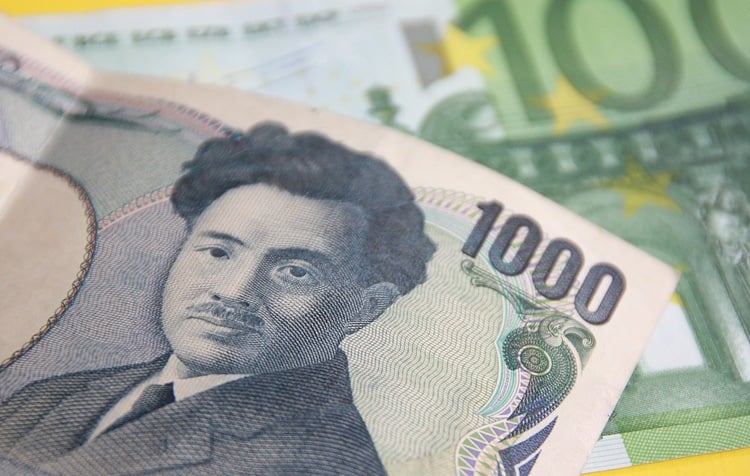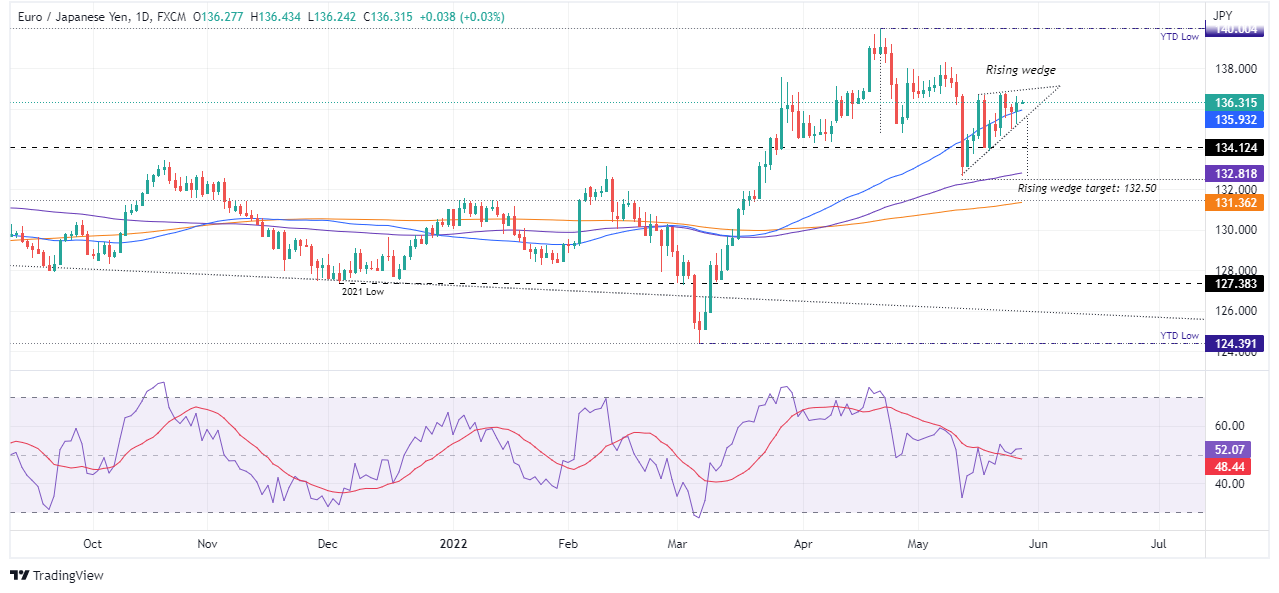Products You May Like
- The EUR/JPY remains firm in the week, advancing 1.02%.
- On Thursday, BoJ Kuroda’s hawkish commentary did not weigh on the EUR/JPY.
- EUR/JPY Price Analysis: To fall towards 132.50 once the rising wedge break is achieved.
The EUR/JPY marches firmly inside a “rising wedge” above the 50-day moving average (DMA), advancing for the third day out of five, but remains below the weekly highs reached on May 23, at 136.79, and since then, the cross-currency has been unable to approach those levels. At 136.31, the EUR/JPY edges higher some 0.03% as the Asian Pacific session begins.
Sentiment-wise, investors’ spirits are upbeat after Wall Street registered hefty gains on Thursday, and Asian equity futures prepare to open higher. Wednesday’s release of the US Federal Reserve minutes did not change what Fed policymakers have expressed since May 5 and, in fact, reaffirmed that the US central bank would hike 0.50% in each of the June and July meetings.
Elsewhere, the EUR/JPY recovered from Wednesday’s losses, despite hawkish commentary from the Bank of Japan (BoJ) Governor Haruiko Kuroda, who said that “When debating exit strategy, key will be how to raise rates and reduce BOJ’s balance sheet.”
Also read: BOJ’s Kuroda: Don’t expect inflation to stay around 2% next year, and the year after
EUR/JPY Price Forecast: Technical outlook
EUR/JPY price action remains confined within the boundaries imposed by the “rising wedge” formed in the daily chart. Usually, the aforementioned chart pattern has a bearish bias. However, EUR/JPY traders need to be attentive to the cross-currency price action near the 50-day moving average (DMA) at 135.93, which could be difficult to break for EUR/JPY bears on their way to achieving a downward break of the pattern.
In the case of that event playing out, the EUR/JPY first support would be the 50-DMA at 135.93. A breach of the latter would send the cross towards the May 20 daily low at 134.58. Once cleared, the following support would be the confluence of the May 12 low and the 100-DMA around the 132.65-81 area.


